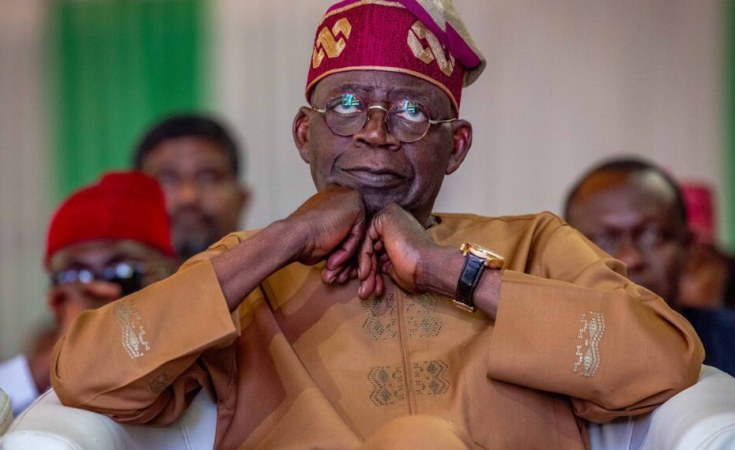Mr Buhari also urges aggrieved political actors to accept whatever the outcome of the cases in court will be.
President Muhammadu Buhari on Sunday commended presidential candidates who lost in the last presidential election for taking their grievances about the poll's outcome to court.
Mr Buhari, in his farewell national broadcast Sunday morning, commended the aggrieved candidates for believing in the Nigerian judiciary by approaching the court for redress.
"I salute the doggedness and resilience of all the Presidential candidates and their political parties for believing in our judicial system by taking their grievances with the election results to court," Mr Buhari said.
Although Mr Buhari did not mention names, his comment implicitly referred to Atiku Abubakar of the Peoples Democratic Party (PDP) and Peter Obi of the Labour Party, who are prosecuting separate petitions challenging the victory of Bola Tinubu of Mr Buhari's All Progressives Congress (APC) at the Presidential Election Petition Court.
Mr Tinubu defeated 17 others to emerge as the winner of the 25 February presidential election.
He also called on all parties to accept whatever the court's decisions would be.
"Irrespective of the outcome of the various cases, I urge all parties involved to accept the decision of our courts and join hands to build a better Nigeria," Mr Buhari said.
Mr Buhari, who also congratulated Mr Tinubu on his electoral victory in the presidential election, said Nigeria's electoral system recorded incremental progress on his watch.
He said in the 15-minute-long national broadcast - his last as he leaves office Monday - that the election was "the most keenly contested presidential election since the first Republic," adding that it "demonstrates that our democracy is getting better and more entrenched with each election."
Mr Buhari, who will hand over to Mr Tinubu at an inauguration ceremony on Monday, said he was leaving office with a sense of fulfilment.
He boasted of leaving behind "an electoral process which guarantees that votes count, results are credible, elections are fair and transparent and the influence of money in politics reduced to the barest minimum."
Mr Buhari added: "And Nigerians can elect leaders of their choice.
"We are already seeing the outcome of this process as it provided an even playing field where persons without any political God-Father or access to money defeated other well-resourced candidates."
Concerns over recent polls
Despite some improvements in the electoral system regarding technology deployment, controversies trailed the conduct of the recent general elections.
Nigeria's electoral commission, INEC, had promised to electronically transmit election results in real-time from polling units to its backend server, but it failed to do so.
INEC's chairman, Mahmood Yakubu, would later blame the failure on hitches experienced during the 25 February presidential election.
The electoral umpire's failure to comply with its own guidelines forms one of the grounds upon which the presidential election is being challenged by Atiku and Mr Obi.
The pair and another political party, Allied Peoples Movement (APM), are urging the court to upturn Mr Tinubu's victory because of alleged substantial non-compliance with some provisions of the Electoral Act 2022.
Atiku and Mr Obi, who came second and third, respectively, in the presidential election, are both praying the court to declare them president.
But there can be only one president at a time in Nigeria.
On the other hand, the APM is urging the court to declare Atiku as president or order a fresh poll.
The Presidential Election Petition Court, which had its prehearing sessions of the suits for two weeks, will resume proceedings in the substantive petitions on Tuesday, 30 May.
During the pre-hearing sessions, the five-member panel of court headed by Haruna Tsammani ordered Atiku and Mr Obi to substantiate claims in their petitions within three weeks each.
While Atiku has indicated intentions to call 100 witnesses in aid of his suit, Mr Obi intends to present 50 witnesses to strengthen his petition.
Meanwhile, the court has 180 days from March, when the petitions were filed, to hear the cases and give its judgements.


